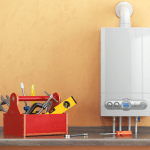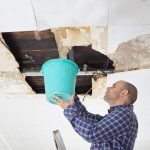Do you worry when your lights flicker? Or do you just accept that it is normal for that to happen on a regular basis? Sometimes flickering lights are harmless and are a normal occurrence as part of the electrical system and cannot be entirely eliminated. But if they happen too often, it is time to call an electrician to come in for some testing and resolution if there is a serious electrical problem that could possibly start a fire.
Try to Figure Out the Cause
Flickering lights are from a fluctuation or reduction in the household voltage that makes the lights dim for a moment. Pay attention the next time that happens so that you can try to narrow down the underlying cause. A simple solution is to change or tighten the bulb. If that is not the answer, and you fear that it may be another issue, do not attempt to fix it yourself. It is important to have a professional electrician determine the cause and use the correct equipment and expertise to fix it.
Large Appliances
If your lights flicker when your air conditioner or clothes washer or dryer or the refrigerator or another large appliance goes on, that is usually because a heavy demand is put on the electrical service. This may be more than a nuisance if the increased current draw causes wiring, breakers, connectors, or other electrical equipment to overheat, which presents a possible risk of fire.
Wiring Can be At Fault
Defective wiring is another possible cause. Loose connectors, undersized breakers, or damaged wires can cause intermittent current losses. If there is a mixture of aluminum and copper wires, special connectors have to be used where the two types meet. The wrong connectors can corrode and cause problems. Having an electrician examine your wiring can quickly reveal if this is the problem and may only need an initial estimate to determine.
Overloaded Circuits
Be warned against plugging wall air conditioners, microwaves, washing machines, or dryers into extension cords or power strips. These appliances must be plugged directly into their own outlets. If there aren’t enough outlets, an electrician can add extra ones. Be aware that this is not a DIY project, and that you should let a professional install any new circuits or outlets.
Any electrical work in your home should be done by a certified electrician to reduce the risk of electrocution. Professionals have the tools and training they need to handle your wiring safely. Take the time to compare different services and electricians in your area and focus on ones that offer free initial estimates.







